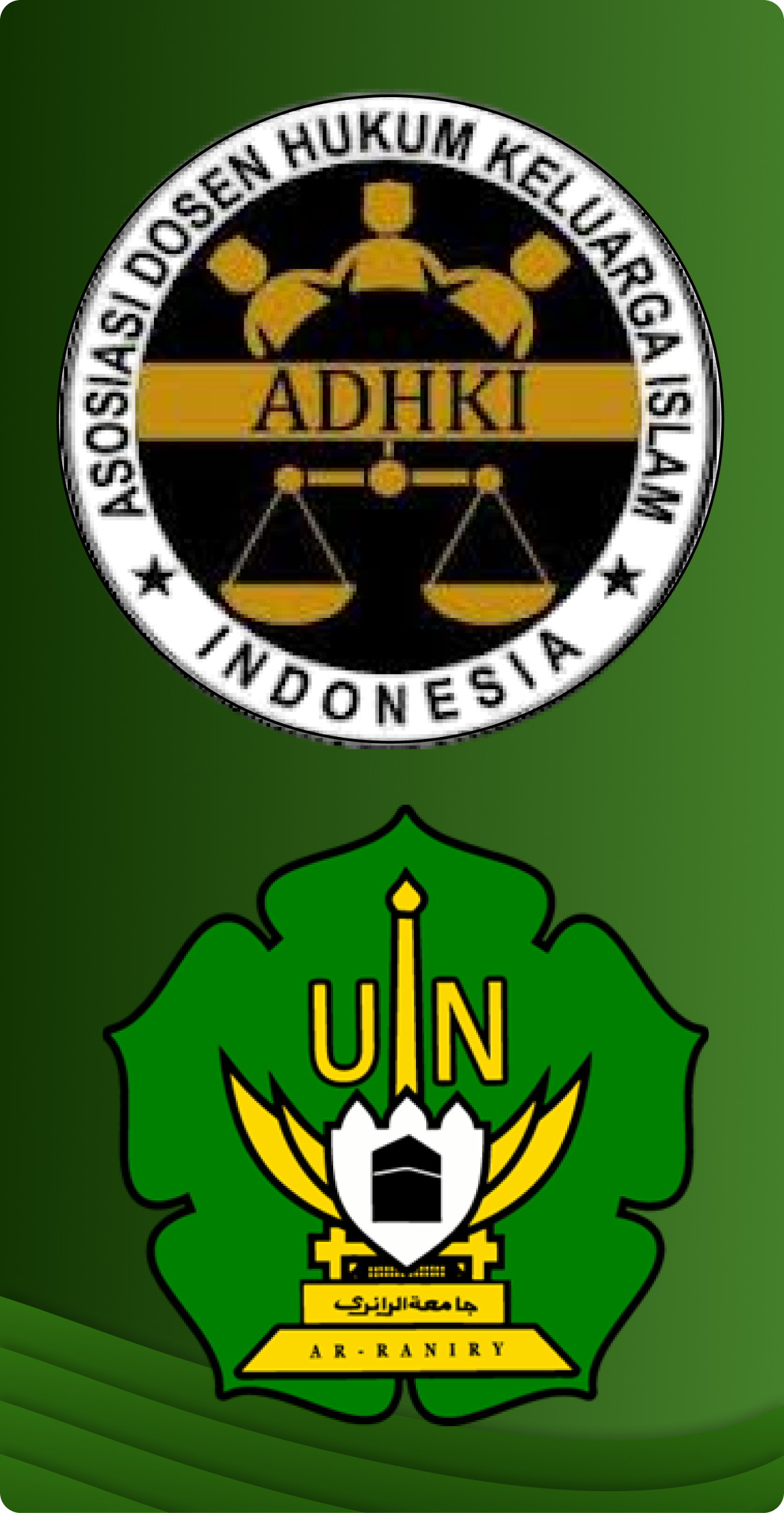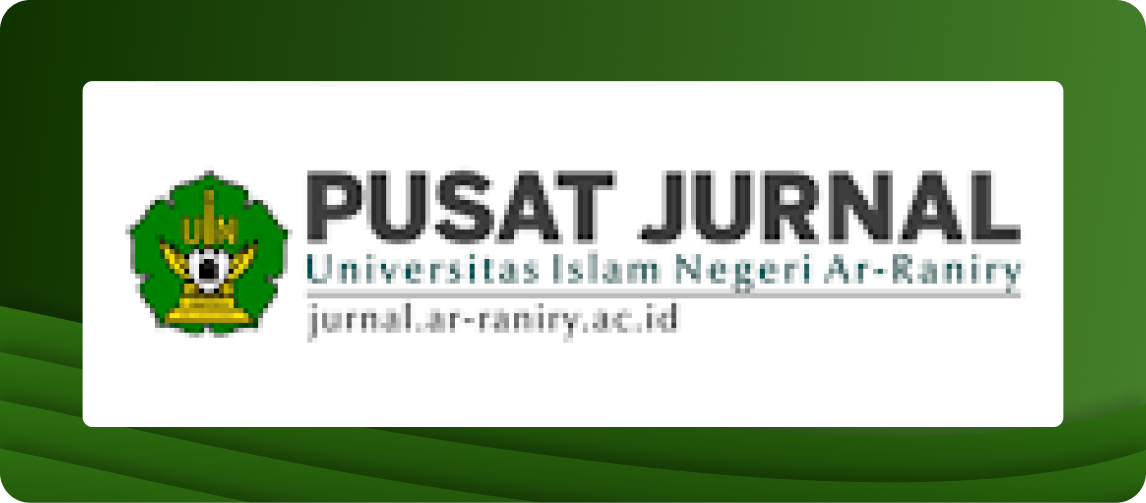The Essence of Mursyid Teachers in Sufism Spiritual Education in the Framework of Maqāṣid al-Syarī'ah
The Perspectives of Indonesian Scholars
DOI:
https://doi.org/10.22373/6m127a63Keywords:
Murshid teacher, spiritual education, maqāṣid al-syarī'ah, spiritual guidance, Islamic educationAbstract
Sufism spiritual education faces challenges in combining traditional values with modern dynamics, especially in the context of multicultural Indonesia. This study aims to analyze the role, competence, and guidance strategies of mursyid teachers within the framework of maqāṣid al-syarī'ah to bridge the gap between the practice of Sufism and the goals of Islamic syarī’ah. This qualitative research uses a thematic analysis of transcripts from Indonesian scholars' lectures on YouTube, which were selected based on their credibility and relevance to the theme. The data were strengthened by triangulation of classical Sufism texts and consultation with experts. The analysis was carried out through thematic coding to identify patterns related to the role, competence, and guidance strategies of mursyid teachers, then contextualized with the framework of maqāṣid al-syarī'ah. The findings show that mursyid teachers play a crucial role in maintaining spiritual integrity (ḥifẓ al-nafs) and doctrinal adherence (ḥifẓ al-dīn). The core competencies include mastery of syarī’ah, taẓkiyah al-nafs skills, and legitimacy through ijāzah. Adaptive guidance strategies, such as a personal approach and dhikr discipline, have proven to be effective in aligning the practice of Sufism with maqāṣid al-syarī'ah. This study affirms the importance of integrating the framework of maqāṣid al-syarī’ah in the training of mursyid teachers to strengthen the pedagogical effectiveness and ethics of guidance. The implications include recommendations for the development of maqāṣid-based curriculum and capacity building for mursyid in the face of multicultural challenges. This research contributes to the revitalization of Sufism education that is relevant to the needs of the modern era.
References
Journal and Books
Abū Ḥāmd al-Gazāli. ʾAīyuhā Al-Walad. Beirut: Dār al-Minhāj, 2014.
’Aḥmd bin ʿAṭāʾ Allah al-Sakandarī. Tāj Al-ʿArūs al-Hāwy Li Tahḏīb al-Nufūs. Dar al-Kutub al-Ilmiyah, 2005.
Agiyanto, Ucuk., Absori, Natangsa Surbakti, Trisno Raharjo, Afiful Ikhwan. “Advocate Legal Education in Indonesia: The Need of Spiritual Dimensions Approach”. Al-Risalah: Forum Kajian Hukum dan Sosial Kemasyarakatan 21, No. 1 (2021). https://doi.org/10.30631/alrisalah.v21i1.742.
Al-Akiti, Muhammad Ayman, and Zainul Abidin Abdul Halim. “A Glimpse on the Characteristics of Sufism and Its Major References in the Malay World.” Jurnal Akidah & Pemikiran Islam 23, no. 1 (June 30, 2021). https://doi.org/10.22452/afkar.vol23no1.9.
Ali, Asghar, Shoukat Ali, Ian G. Baird, and Muhammad Yaseen. “Exploring the Potential Role of Muslim Spiritual Leaders in Coping with Climate Change through Tree Planting in Pakistan.” Local Environment 30, no. 4 (April 3, 2025). https://doi.org/10.1080/13549839.2024.2447748.
Ali, Bukhari., Agustin Hanapi, Abdul Jalil Salam, Muhammad Syauqi, Nadhilah Filzah. “The Preemptive Approach of Ulama in Aceh to Eradicating Corruption”. El-Maslahah 14, No. 2 (2024). https://doi.org/10.23971/el-mashlahah.v14i2.8885.
Ali, Noor. “Muscrit: Towards Carving a Niche in Critical Race Theory for the Muslim Educational Experience.” International Journal of Research & Method in Education 45, no. 4 (August 8, 2022). https://doi.org/10.1080/1743727X.2022.2103112.
Arjmand, Reza. “Ijāzah : Methods of Authorization and Assessment in Islamic Education,” 135–55. Springer, Cham, 2018. https://doi.org/10.1007/978-3-319-53620-0_55-1.
Ayub, Norhalimaton Saadiah., Mohd Isa Hamzah, Khadijah Abdul Razak. “The Practice of Ta’dib Leadership among Islamic Education Teachers.” International Journal of Academic Research in Business and Social Sciences 10, no. 3 (March 29, 2020). https://doi.org/10.6007/IJARBSS/v10-i3/7352.
Badrudin, Sandra Taufik Hidayat, Yuli Marlina, Samrin Samrin, Nurochim Nurochim. “Islamic Esoteric Education in Internalizing Cultural Values of Kampung Keputihan in the Modern Era”. Jurnal Ilmiah Peuradeun: The Indonesian Journal of the Social Sciences 13, No. 2 (2025). https://doi.org/10.26811/peuradeun.v13i2.1677.
Bhat, Ali Muhammad. “Maqasid Al-Shari’ah Is a Divine Shield of Islamic Policy.” Journal of Islamic Thought and Philosophy 2, no. 2 (November 30, 2023). https://doi.org/10.15642/jitp.2023.2.2.128-150.
Casewit, Yousef. “Al-Ghazālī’s Virtue Ethical Theory of the Divine Names: The Theological Underpinnings of the Doctrine of Takhalluq in al-Maqṣad al-Asnā.” Journal of Islamic Ethics 4, no. 1–2 (December 15, 2020). https://doi.org/10.1163/24685542-12340042.
———. “Shushtarī’s Treatise on the Limits of Theology and Sufism: Discursive Knowledge (ʿilm), Direct Recognition (Maʿrifa), and Mystical Realization (Taḥqīq) in Al-Risāla Al-Quṣāriyya.” Religions 11, no. 5 (2020). https://doi.org/10.3390/rel11050226.
Daniyarti, Wiwi Dwi, Muhammad Thoriq, Ega Bagas Pradana, and Safira Dwi Nurida. “The Concept of Dhikr in Sufism and Its Practices and Benefits in Life.” Journal Analytica Islamica 12, no. 2 (December 29, 2023). https://doi.org/10.30829/jai.v12i2.18549.
Deighton, Rose. Finding God Between Water and Clay: Contemporary Sufi Women Re-Imagine the Self, Teaching and Community. Atlanta, GA, USA: Emory University Atlanta, 2021.
Deighton-Mohammed, Rose. “A Sufi Pedagogy of Community-Engaged Self-Cultivation: Contemporary Approaches to Training, Accountability, and Religious Abuse in Sufism.” Culture and Religion 11 (2024). https://doi.org/10.1080/14755610.2024.2319077.
Deswita. “Konsepsi Al-Ghazali Tentang Fiqh dan Tasawuf”. Juris: Jurnal Ilmiah Syari’ah 13, No. 1 (2024). http://dx.doi.org/10.31958/juris.v13i1.1131.
Dewi, R. “Madrasah dan Transmisi Ilmu Pengetahuan dalam Peradaban Islam”. Nurani: Jurnal Kajian syari’ah Dan Masyarakat 14, No. 2 (2014). https://doi.org/10.19109/nurani.v14i2.112.
Elfia, Nurus Shalihin, Surwati, Yan Fajri, & Aulia Rahmat. “Institutionalizing Maqāsid Hifz al-Naṣl within the Minangkabau Inheritance Framework”. Ijtihad: Jurnal Wacana Hukum Islam Dan Kemanusiaan 24, No. 2 (2024). https://doi.org/10.18326/ijtihad.v24i2.193-222.
Fadhil, Muhammad Yusuf, and Saliha Sebgag. “Sufi Approaches to Education: The Epistemology of Imam Al-Ghazali.” Nazhruna Jurnal Pendidikan Islam 4, no. 1 (2021). https://doi.org/10.31538/nzh.v4i1.834.
Firdaus, None, Muhammad Taufiq, None M Subagus, and None M A Jati Purnomo. “Impact of Providing Islamic Spiritual Extracurriculars on Student Character Development.” International Journal of Education and Teaching Zone 2, no. 2 (2023). https://doi.org/10.57092/ijetz.v2i2.112.
Hannan, Haukil. “Under the Guidance of the Prophet: Charisma and Religious Authority in Contemporary Madura, Indonesia.” Islamica: Jurnal Studi Keislaman 17, no. 2 (2023). https://doi.org/10.15642/islamica.2023.17.2.335-364.
Humble, Niklas, and Peter Mozelius. “Content Analysis or Thematic Analysis: Doctoral Students’ Perceptions of Similarities and Differences.” The Electronic Journal of Business Research Methods 20, no. 3 (2022). https://doi.org/10.34190/ejbrm.20.3.2920.
Islam, Muhammad Thoriqul, and Khoiruddin Nasution. “The Meaning of Suhbah Tijaniyah Tariqa in Building Adab.” Al-Hayat: Journal of Islamic Education 8, no. 2 (April 7, 2024). https://doi.org/10.35723/ajie.v8i2.450.
Jasser Auda. Maqashid Al-Shari’ah as Philosophy of Islamic Law A Systems Approach. London: the international institute of islamic thought, 2007.
Kasim, Tengku Sarina Aini Binti Tengku., Siti Falihah Binti Yaakob, Nor Fahimah Binti Mohd Razif. “Family Influence on Female’s Blood Education in the Context of Islamic Practice in Malaysia”. El-Usrah 7, No. 2 (2024). https://doi.org/10.22373/ujhk.v7i2.26252.
Lala, Ismail. “Asceticism as Renouncing and Embracing the World in Ibn ‘Arabī’s Radical Metaphysics.” Religions 14, no. 9 (August 24, 2023). https://doi.org/10.3390/rel14091092.
Lumanatul Latifah. “History of Islamic Education in Indonesia.” HISTORICAL: Journal of History and Social Sciences 3, no. 2 (July 22, 2024). https://doi.org/10.58355/historical.v3i2.94.
Mahmood, Abdull Rahman, Ibrahim Hamed Hassan Abu Suailk, Wan Haslan Khairuddin, and Nur ‘Izzati Hashim. “Al- Ghazālī’s Approach In Defending The Islamic Faith.” Islamiyyat 44, no. IK (June 1, 2022). https://doi.org/10.17576/islamiyyat-2022-44IK-01.
Mahmud, Salami, Sri Rahmi Sri Rahmi, Nufiar Nufiar, Nurbayani Nurbayani, and Realita Nurdin. “Building Students’ Character Based on Maqāṣid al-Sharī’ah: Perspectives of Parents, Teachers, and Community Members in Banda Aceh.” Samarah: Jurnal Hukum Keluarga Dan Hukum Islam 7, no. 3 (November 30, 2023). https://doi.org/10.22373/sjhk.v7i3.17708.
Malli, Gabriel. “Guiding the Pious Self: Morality and Affect in Muslim Instructional YouTube Videos.” Journal of Religion, Media and Digital Culture 13, no. 2 (October 29, 2024). https://doi.org/10.1163/21659214-13021250.
Mawardi, Imam. "Islamic Law and Imperialism: Tracing on the Development of Islamic Law in Indonesia and Malaysia". al-Ihkam: Jurnal Hukum dan Pranata Sosial 13, No.1 (2018). https://doi.org/10.19105/al-lhkam.v13i1.1583.
Mohamad, Abu Dardaa, Khazri Osman, and Ahmad Irdha Mokhtar. “Spirituality in Maqasid for the Empowerment of Human Well-Being.” International Journal of Business and Social Science 11, no. 10 (2020). https://doi.org/10.30845/ijbss.v11n10p6.
Muhammad, Farhad, Amir Maliki Abitolkha, and Limas Dodi. “Dimensions of Sufism Within The Islamic Religious Education Curriculum in Higher Education.” Nazhruna: Jurnal Pendidikan Islam 7, no. 1 (February 22, 2024). https://doi.org/10.31538/nzh.v7i1.4525.
Mukarromah, Pawito, and Albert Muhammad Isrun Naini. “Compliance Gaining in Communication Between Mursyid Teachers and Their Students.” Journal of Social Interactions and Humanities 2, no. 2 (July 31, 2023). https://doi.org/10.55927/jsih.v2i2.5063.
Munir, Muhammad Misbakul, Masyitoh Masyitoh, Agus Suradika, and Saiful Bahri. “Implementation of Maqāṣid Al-Syarī’ah Concept in Human Resource Management at Muhammadiyah Boarding School Ki Bagus Hadikusumo Jampang Bogor.” Eduvest - Journal of Universal Studies 3, no. 9 (2023). https://doi.org/10.59188/eduvest.v3i9.919.
Nasrollahi, Zahra, Narges Eskandari, MohsenRezaei Adaryani, and Mohammad HasanHaji Rahimian Tasuji. “Spirituality and Effective Factors in Education: A Qualitative Study.” Journal of Education and Health Promotion 9, no. 1 (2020). https://doi.org/10.4103/jehp.jehp_430_19.
Nasrullah, Moh Najib, Uu Nurul Huda, Enceng Arif Faizal. “Reconstructing the Indonesian Legal System through the Lens of Maṣlaḥah Mursalah”. Al-Manahij 19, No. 1 (2025). https://doi.org/10.24090/mnh.v19i1.7861.
Nur, Iffatin., Syahrul Adam, M. Ngizzul Muttaqien. “Maqāṣid Al-Sharī‘at: The Main Reference and Ethical-Spiritual Foundation for the Dynamization Process of Islamic Law.” Ahkam: Jurnal Ilmu Syariah 20, No. 2 (2020), 10.15408/ajis.v20i2.18333.
Nurul Ain Norman, and Mohammad Eisa Ruhullah. “Exploring The Ethical Dimensions of Fiqh: The Role of The Soul in Achieving Maqasid Al-Shari’ah.” Al-Shajarah: Journal of the International Institute of Islamic Thought and Civilization (ISTAC) 29, no. 1 (June 30, 2024). https://doi.org/10.31436/shajarah.v29i1.1827.
Pinto, Paulo G. “Mystical Metaphors: Ritual, Symbols and Self in Syrian Sufism.” Culture and Religion 18, no. 2 (April 3, 2017). https://doi.org/10.1080/14755610.2017.1326957.
Rahmatika, Arivatu Ni’mati, Samsul Maarif, Abdul Wahid, and Kamelia Evi Kusuma. “The Concept of Spiritual Leadership in Educational Institutions Is Based on Maqashid Shari’ah.” Syaikhuna Jurnal Pendidikan Dan Pranata Islam 13, no. 02 (2022). https://doi.org/10.36835/syaikhuna.v13i02.5937.
Rasyid, Arbanur. “Social Fiqh and Its Implications for Community Life in Society 5.0”. Al-Ahkam 31, No. 2 (2021). https://doi.org/10.21580/ahkam.2021.31.2.8219
Saffari, Siavash. “Tawhid Paradigm and an Inclusive Concept of Liberative Struggle.” Religions 14, no. 9 (2023). https://doi.org/10.3390/rel14091088.
Sarim Karimullah, Suud. “Character Education in Islamic Sufism Perspective.” Ta’dib: Jurnal Pendidikan Islam Dan Isu-Isu Sosial 21, no. 2 (December 23, 2023). https://doi.org/10.37216/tadib.v21i2.1301.
Sejin, Jung. “The Idea, Role and Function of the Sheikh in Sufism.” Voprosy Filosofii, no. 3 (March 2024). https://doi.org/10.21146/0042-8744-2024-3-207-212.
Sidiq. “Akhlak Tasawuf.” Eksekusi : Jurnal Ilmu Hukum Dan Administrasi Negara 2, no. 1 (December 4, 2023). https://doi.org/10.55606/eksekusi.v2i1.818.
Sijamhodžić-Nadarević, Dina. “Philosophy and Pedagogy of Islamic Education in Today’s Europe.” Journal of Muslims in Europe 13, no. 3 (December 6, 2024). https://doi.org/10.1163/22117954-bja10106.
Smith, Bianca J., Saipul Hamdi, and Ahmad Muzayyin. “Female Sufi Guides and the Murshida Fatwa in Indonesian Sufism: Murshidas in a Sufi Order in Lombok.” Contemporary Islam 17, no. 3 (October 15, 2023). https://doi.org/10.1007/s11562-023-00522-z.
Syukur, Iskandar., Noor Sulastry Yurni Ahmad. “The Indonesian Islam: Law and The Ideological Perspective”. Al-’Adalah 11, no. 2 (2014). https://doi.org/10.24042/adalah.v12i2.3016.
Syukur, Agus, and Dede Rosyada. “Pemikiran Pendidikan Akhlak Tasawuf Dalam Ajaran Tarekat Qadiriyyah Wa Naqsyabandiyyah Suryalaya.” Jousip Journal of Sufism and Psychotherapy 3, no. 2 (2023). https://doi.org/10.28918/jousip.v3i2.1978.
Timani, Hussam S. “Al-Fana’ in Ibn ‘Arabi’s and Eckhart’s Thoughts: The Annihilation of the Many in the One.” In Mystical Traditions. Cham: Springer Nature Switzerland, 2023. https://doi.org/10.1007/978-3-031-27121-2_12.
Vandamme, Gregory. “Develación (Kašf) Y Desprendimiento (Taǧrīd): La Función Educativa Del Maestro (Šayḫ) En El Proceso de Realización Espiritual Sufí.” El Azufre Rojo, no. 10 (July 5, 2022). https://doi.org/10.6018/azufre.533981.
Wan Sayed, Wan Saleha, Mohd Hasrul Shuhari, and Wan Hishamudin Wan Jusoh. “Institution of Sufi Order in Human Spiritual Empowerment.” Malaysian Journal Of Islamic Studies (MJIS) 4, no. 2 (September 15, 2020). https://doi.org/10.37231/mjis.2020.4.2.144.
William C. Chittick. The Sufi Path of Knowledge: Ibn al-ʿArabi’s Metaphysics of Imagination. New York Press: State University of New York Press, 2010.
Wirianto, Dicky, Abdul Manan, Zubaidah Zubaidah, and Suraiya Suraiya. “Unveiling Spiritual Guidance: Sheikh Muhammad Waly al-Khalidy’s Role in Naqshbandiyah Sufi Order in Aceh.” Teosofi: Jurnal Tasawuf Dan Pemikiran Islam 13, no. 2 (December 1, 2023). https://doi.org/10.15642/teosofi.2023.13.2.181-203.
Zarrabi-Zadeh, Saeed. “Preface to the Special Issue ‘Sufism in the Modern World.’” Religions 15, no. 5 (April 29, 2024). https://doi.org/10.3390/rel15050554.
———. “Preface to the Special Issue ‘Sufism in the Modern World.’” Religions 15, no. 5 (April 29, 2024). https://doi.org/10.3390/rel15050554.
ʿAbd Allāh al-Ḥaḍramī al-Syāfʿī. Risālah Adāb Sulūk Al-Murīd. dār al-ḥawi llnšr, 1994.
Downloads
Published
Versions
- 2025-06-30 (2)
- 2025-06-30 (1)
Issue
Section
License
Copyright (c) 2025 Muhammad Akmansyah, Nurnazli Nurnazli, Amin Mujahid, Tamer Saad Ibrahim Khedr

This work is licensed under a Creative Commons Attribution-ShareAlike 4.0 International License.
Authors who publish in El-Usrah: Jurnal Hukum Keluarga agree to the following terms:
Authors retain copyright and grant the journal right of first publication with the work simultaneously licensed Attribution-ShareAlike 4.0 International (CC BY-SA 4.0) that allows others to share the work with an acknowledgment of the work's authorship and initial publication in this journal.
Authors are able to enter into separate, additional contractual arrangements for the non-exclusive distribution of the journal's published version of the work (e.g., post it to an institutional repository or publish it in a book), with an acknowledgment of its initial publication in this journal.
Authors are permitted and encouraged to post their work online (e.g., in institutional repositories or on their website) prior to and during the submission process, as it can lead to productive exchanges, as well as earlier and greater citation of published work. (See The Effect of Open Acces)

















